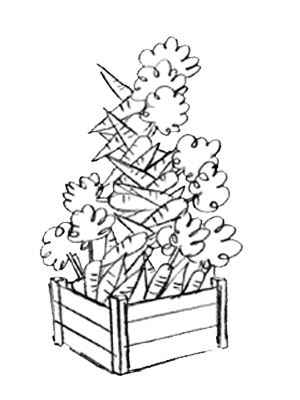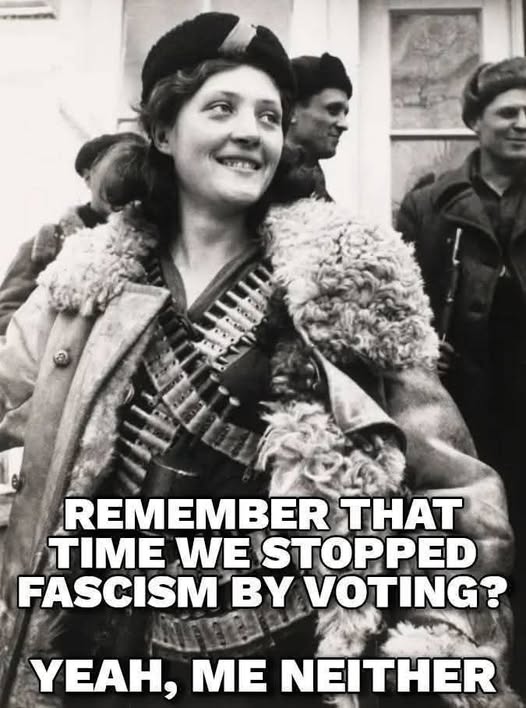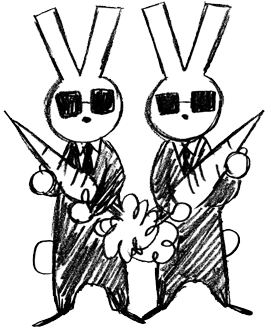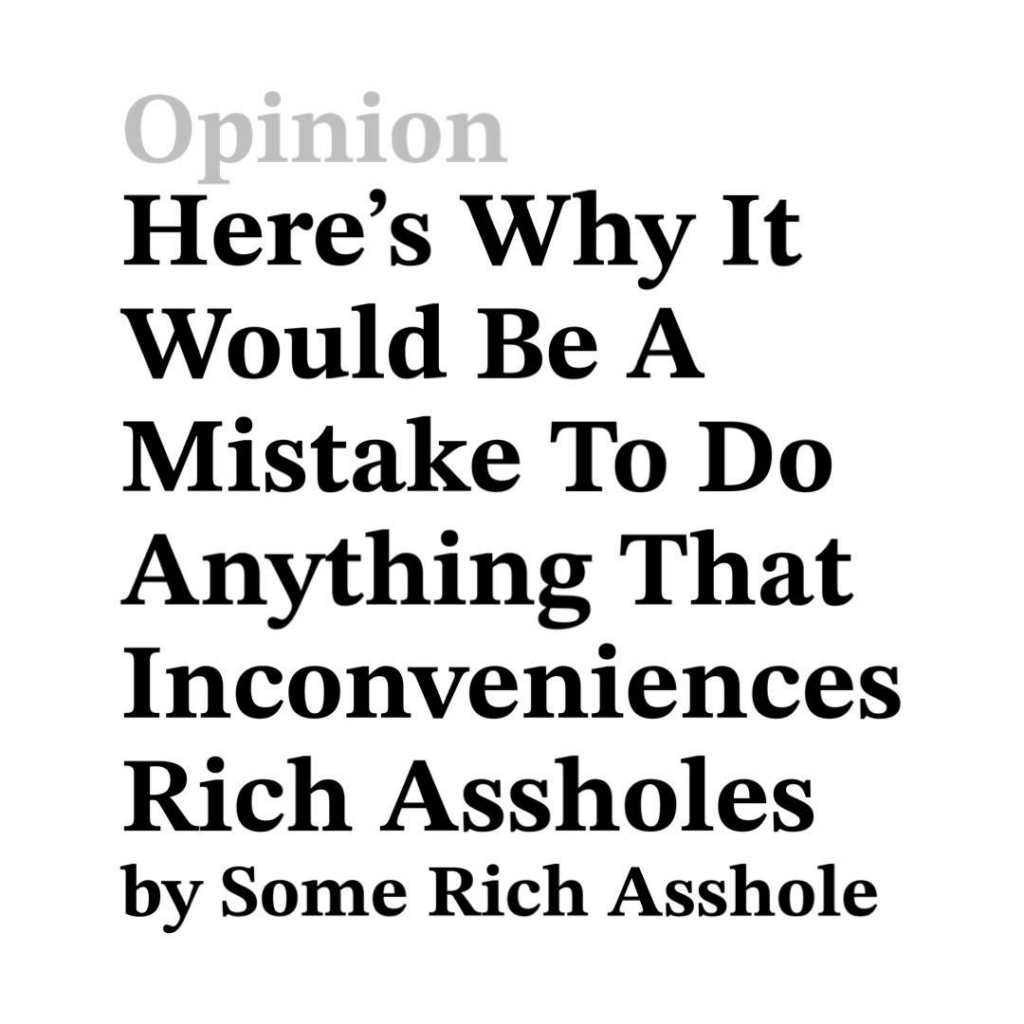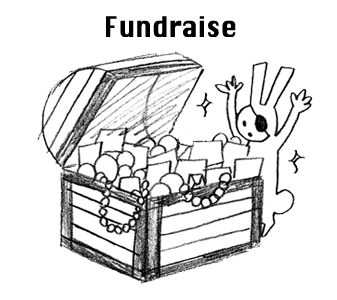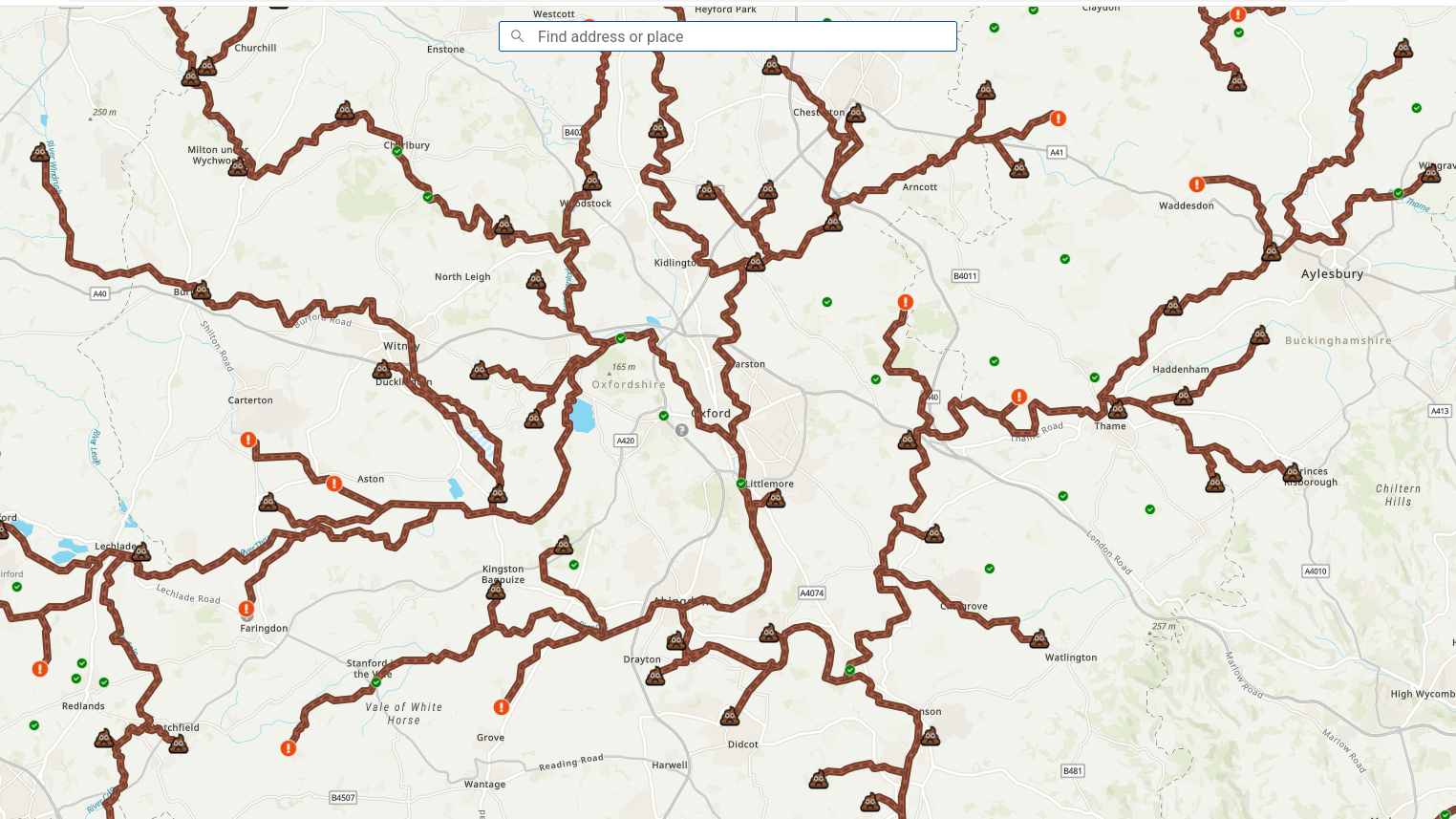
This story was sparked by worrying about water quality in the UK, on the map above, it’s sewage everywhere https://www.sewagemap.co.uk/ The turds are active now, the red is active recently. The story is about this nasty mess set a few years before the longer Oxford story of refuges.
The characters are idealised/generalised versions of existing people, boaters, student journalist and collage bureaucrats I have met at meany events. the rowers come from watching this film. The setting and situation is completely real.

Chapter One – Waterline
The rain had stopped pretending to be weather. It no longer arrived as storms or fronts that moved across maps. It stayed. A fine, patient pressure against roofs and leaves, seeping into brickwork, soaking pathways until the ground forgot its original shape. By late January the river had stopped falling between tides of rain. Each morning it held the height it had reached the night before, as if testing the city’s tolerance. Nobody spoke of flooding yet. Oxford preferred euphemism. Seasonal levels. Saturated ground. Temporary closure of low paths.
The meadows filled first. At dawn they looked like fog lying flat against the grass, until the light shifted and revealed water stretched thin across the land, smooth as skin. Fence posts stood half-submerged like markers from an abandoned survey. Ducks moved where cyclists used to ride.
Scot adjusted the rope without thinking about it. Two turns around the bollard, a glance at the knot, a tug to feel how the current pressed against the hull. He had lived on the river long enough to trust tension more than official numbers. The boat rose another inch as he watched. Behind him, kettles boiled across the moorings, music murmured inside cabins, someone coughed hard enough to echo off the steel sides of the boats. A smell drifted through the damp air – sweet and wrong – something between, mold, cut grass and sewage. He breathed through his mouth.
“Gone up again?” called a voice from the next boat. “Couple of fingers,” he said, holding up two knuckles. The neighbour nodded without surprise. No one here expected stability. The river moved; they moved with it. A dead fish bumped gently against the hull, turning once before drifting away downstream.
Up at the boathouses the crews arrived before sunrise, carrying their shells like frail objects. Mist hung low across the water, flattening sound. Commands from coaches emerged as disembodied instructions – legs, together, hold – then faded again. Maya slid into her seat, pushing the thought away that the water felt heavier lately. She told herself it was just the cold. They launched cleanly. The river widened beyond its usual edges, swallowing landmarks she used to count strokes by. Trees stood ankle-deep in water. The current tugged harder than expected. “Ignore it,” the coach shouted from the bank. “You adapt.” They drove forward.
Halfway through the session her stomach tightened. Not pain exactly, more a hollow instability, like standing up too quickly. She swallowed it down. Everyone was tired this term. Everyone was pushing harder. The boat surged forward. Oars cut clean arcs through water that smelled faintly metallic. She did not mention it.
In a EA office in town, a spreadsheet refreshed itself every hour. River levels displayed as neat columns. Amber warnings held steady. Red remained unused. A junior analyst highlighted a row and hesitated before adding a note: Monitoring station offline – awaiting maintenance confirmation. He hovered over the send button, reread the sentence, and deleted the second half. Too definitive. Outside the window, water pooled along the curb where drains had stopped pretending to function.
By mid-morning, students gathered along bridges to photograph the reflections. The flood looked beautiful from above. Buildings doubled themselves in the still surfaces. The sky appeared deeper. Someone posted a video captioned Oxford Venice lol. Comments split immediately between jokes, arguments, and links to articles nobody opened.
Scot walked the towpath until it vanished beneath opaque water. He stopped where a sign warned of unstable ground, though the warning itself leaned at an angle suggesting long familiarity with instability. He watched the current carry fragments past – twigs, plastic bottles, a child’s football, clumps of foam that held together longer than they should. Another boater joined him, hands deep in coat pockets. “Smell that?” she asked. He nodded. They stood without speaking, listening to the quiet rush that had grown louder over the past week, as if the river had found a new voice and was testing its volume. Further downstream, sirens sounded briefly and then cut off. The waterline reached the bottom of the signpost and kept moving. Neither of them said the word flood. Not yet.
Chapter Two – Acceptable Risk
Dr. Elaine Mercer read the email twice before opening the attachment. The subject line carried no urgency: Weekly Environmental Health Summary – Thames Catchment, She appreciated that. Urgency implied responsibility. The office heating clicked on and off with mechanical indifference. Outside, rain traced slow vertical lines down the window, each drop merging with the last until individual motion disappeared. She scrolled.
River levels: elevated but stable.
Sewage overflow events: within seasonal expectations.
Waterborne illness reports: unremarkable variation.
The language was precise enough to reassure without committing to certainty. She paused at a footnote. Monitoring station temporarily offline – data extrapolated from upstream metrics. Elaine leaned back in her chair. The ceiling tiles carried faint stains from older leaks that had long ago been classified as resolved. Extrapolated data always made her uneasy. It meant the map no longer matched the terrain, only its memory. She opened a second window and checked hospital admissions. Gastrointestinal complaints had ticked upward over the past two weeks. Nothing dramatic. A slope rather than a spike. Easily explained by seasonal viruses, student travel, poor food hygiene. She highlighted the row anyway.
Her phone vibrated. “Morning,” said Tomas from water quality, his voice thin through the speaker. “You’ve seen the report?” she asked. “Which version?” She smiled without humour. “The one that says everything is normal.” A pause. “We’re within thresholds,” he said carefully. “Technically.” “And unofficially?” He exhaled, the sound distorted by the connection. “We’re getting more overflow triggers than expected. Pumps struggling. Ground saturation is… unusual.” “Unusual doesn’t go into public statements.” “I know.” Another pause, heavier. “They’re worried about panic,” he added. “They’re always worried about panic.” Elaine closed the report. “What are you worried about?” she asked. He hesitated long enough to answer without answering. “Complex interactions,” he said finally. “Floodwater mixes things that are meant to stay separate.”
At midday she attended a risk communication briefing. The meeting took place over video call, faces arranged in a grid like postage stamps. “Key objective,” said a communications officer, “is maintaining proportional response.” Slides appeared: graphs with reassuring gradients, bullet points shaped to soften edges. “Current evidence does not indicate significant risk to the general public.” Elaine watched the phrase settle into the room like condensation. She imagined it repeated in interviews, printed in newspapers, shared across feeds. Does not indicate, significant risk, general public. Words designed to distribute responsibility so thinly that no single person could feel its weight. “Any dissenting views?” asked the chair. Silence. She considered speaking. Instead she made a note in the margin of her notebook: absence of evidence ≠ evidence of absence. The camera reflected her own face back at her, pale under office lighting, eyes already tired. She muted her microphone.
On the way home she walked along the river. She told herself it was coincidence. Water covered the lower path entirely. Temporary barriers redirected pedestrians onto higher ground, but people stepped over them anyway, drawn by proximity to the swollen current. A rowing shell cut through the surface, oars rising and falling in mechanical rhythm. The rowers’ breath hung visible in the air. She noticed a smell she could not immediately categorize – organic decay layered with something sharper, chemical. A dead fish lay caught against the bank, its silver skin dulled to grey.
Two boaters stood nearby talking quietly. One glanced at her, assessing whether she belonged to their conversation. She did not. She walked on. Her phone buzzed again – a message from a hospital contact. Three more cases similar symptoms. Mostly rowers. Probably coincidence but flagging anyway. She stopped under a tree, reread the message, then looked back at the river. The water moved steadily, carrying fragments past: branches, foam, something plastic twisting slowly like a ribbon. Above her, a student laughed loudly, taking photos of reflections. The river looked calm enough to trust. She typed a reply. Keep me updated. Then she added, after a moment’s hesitation: Especially if pattern emerges. She slipped the phone into her pocket and continued walking, aware of a faint tightening in her chest that had nothing to do with cold air. Behind her, unseen, the water climbed another centimetre.
Chapter Three – Signal and Noise
That evening she drafted a note for internal circulation. Careful language. Measured tone. She avoided words that triggered escalation protocols. She added a line near the end: Recommend increased sampling frequency if resources allow. Before sending, she reread it and changed the phrasing. Consider review of sampling schedule subject to operational capacity. The revised sentence felt safer. She pressed send. Outside, rain began again – not heavier, not lighter – just present, as if it had never stopped.
Isaac watched the river through her phone before she looked at it directly. The live stream buffered, caught up, froze, then jumped forward three seconds. Someone had tied their camera to a bridge railing; the view tilted slightly off level, water sliding sideways across the frame like a mistake in gravity. The chat scrolled too quickly to read.
OXFORD VENICE 😂
mate this happens every year calm down
no seriously sewage alerts are up again
fake news lol
She lowered the phone. The real river moved slower than the version online, heavier, less dramatic. Floodwater had spread into the parkland, flattening colour into a reflective tone. A row of temporary barriers leaned at odd angles where people had stepped around them. A group of students stood nearby filming themselves. “Climate change aesthetic,” one of them said, laughing. Isaac opened her notes app and typed: Observation: people perform disaster before recognising it. She deleted the sentence. It sounded pretentious.
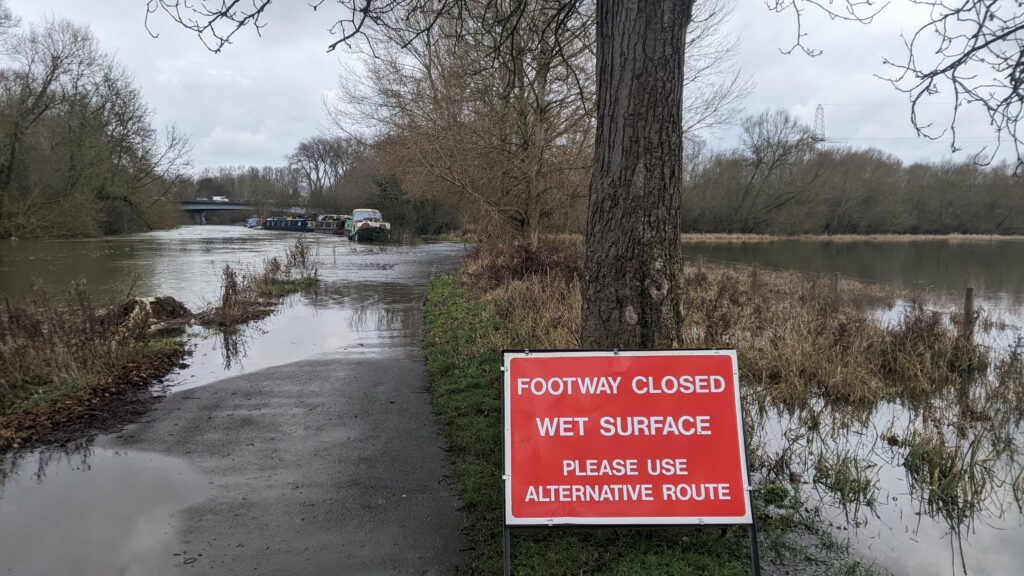
Her editor at the Cherwell student paper wanted something for social media “local but wider.” “You know,” he’d said, leaning back in his chair, “something that feels bigger than just weather.” He had already written the headline in his head. She had nodded as if she understood. Now she stood by the river scrolling through fragments. A meme showed a gondola photoshopped under Magdalen Bridge. Another overlayed rising water levels with a joke about student debt. Someone else posted screenshots of a sewage spill report, red circles drawn around numbers with no explanation. In the comments, arguments multiplied.
water company lies every year
stop fear mongering
rowers always get sick it’s normal
my mate works at hospital says loads of cases
She opened three tabs at once. An official EA statement: No evidence of significant risk. A local activist thread claiming the river was “toxic soup.” A rowing forum discussing stomach bugs as training stress. Each narrative linked to different sources, different screenshots, different interpretations of the same data. She felt like she was looking at three overlapping maps that refused to align.
A notification pinged from a group chat. Boathouse Rumours. She had joined it weeks ago for a class project. anyone else sick? it’s just norovirus going round halls, nah coach said water quality fine, someone posted testing results yesterday?? A blurry photo appeared – handwritten numbers on damp paper. No context. The chat exploded with reactions. where is this from??fake, looks legit actually, why would anyone fake water tests..The image disappeared a minute later, deleted by the sender. She stared at the empty space where it had been.
Isaac walked further along the path until the ground dipped under water. A man on a barge adjusted ropes with slow, practised movements. Another person handed him something through a window – a mug, maybe – and they spoke briefly before retreating into separate spaces. They didn’t look alarmed. They looked attentive. She raised her camera but hesitated. Filming felt intrusive here, like interrupting a conversation she didn’t understand. Instead she recorded audio. Water moving. Metal tapping against metal. Distant oars cutting rhythmically. She listened back through headphones. The river sounded alive, busy, layered with small sounds that vanished in video.
Her phone vibrated again. A text message from an unknown number: You’re asking about water quality? Talk to people on boats. They know more than council. No name attached. She typed a reply, deleted it, typed again. Who is this? No response.
Back on social media, a thread had gone viral accusing the university of ignoring safety concerns to protect reputation. Replies divided instantly. Some shared personal illness stories. Others accused the posters of exaggeration. A verified account from the water company posted a calm infographic explaining how monitoring ensured safety. The comments underneath filled with sarcasm.
Isaac felt the familiar vertigo of trying to assemble truth from fragments designed to resist coherence. She opened a new document and began outlining: Official narrative: controlled, reassuring. Athletic culture: denial framed as resilience. Informal networks: anecdotal but detailed. Online discourse: escalating polarisation. She paused. It felt wrong to describe them as separate categories. They overlapped constantly, people moving between them depending on context, belief, mood. Reality behaved like the floodwater – spreading into unexpected spaces, dissolving boundaries.
A rowing shell passed close to shore. One of the rowers coughed hard, missing a stroke. The boat wobbled briefly before recovering its rhythm. The coach shouted encouragement that sounded like command. Isaac recorded video on her phone automatically. Later she replayed it frame by frame, trying to decide whether she had witnessed something meaningful or just normal strain.
As evening approached, posts about the river multiplied. Drone footage showed wide reflective surfaces that looked almost peaceful. Someone uploaded a chart claiming bacteria levels were rising rapidly. Another account debunked it within minutes. The same images circulated with opposing captions. She felt less informed with each new piece of information. Her phone buzzed again. The unknown number had sent a location pin – a stretch of moorings downstream. No message attached.
She looked up from the screen at the river itself, flowing steadily past without commentary. For a moment she considered turning the phone off entirely. Instead she saved the location. Behind her, two students argued loudly about whether the flood was exaggerated by the media. Neither of them looked at the water.
Chapter Four – Currents of Knowledge
Scot leaned over the gunwale, cupping his hands to taste the river. Not drinking – testing. The water was colder than usual, metallic on his tongue, slick with an unplaceable tang. A murk had settled beneath the surface that made him uneasy. He had learned to trust these sensations more than any EA report. Across the mooring, Fiona clinked glass bottles together, shaking samples from the day’s collection. She labelled each quickly with waterproof pen: “A1,” “B2,” “downstream,” “midstream.” Her handwriting wobbled, fingers numb from damp.
“Anything yet?” Scot asked. “Foam thicker than last week. Sediment’s darker. Smells worse.” He nodded. Nothing definitive, but the signs were consistent. The boater network had grown quietly over winter. Messages passed through open affinity group chat apps, handwritten notes. No one formally coordinated; it was peer-to-peer, messy, fragile – but it worked. Knowledge didn’t accumulate in one place. It moved like the river itself, branching, looping, returning.
Someone had posted a warning in a private channel the night before: Rowers experiencing stomach problems. Reports from Radcliff hospital. Be careful. The posts sparked questions, not solutions. People who knew each other personally replied. Locations were confirmed. Water samples cross-checked. Patterns began to appear. Scot glanced toward the bridge. A rowing shell cut the water in the distance. The oars dipped in rhythm, steady, precise. The coach’s voice carried faintly over the fog: Push! Keep the pace!
He knew that one of those shells had sick rowers aboard. He also knew that warning them officially would be useless – the culture of gap would interpret caution as weakness. he started a group voice call including Simon, who lived upriver. He had a boat but also a background in microbiology. “Levels rising faster than expected. Sediment test on last run shows E. coli count above what we’ve seen in previous winters.” Fiona’s hand tightened around her bottle. “No official channels will touch this. If anyone reports, it will vanish in bureaucracy.” Scot tapped his fingers on the hull. He had already seen it happen. Official data suppressed. Emails phrased to reassure, never to inform. But across moorings, across boats, across small docks hidden on the back waters, people were starting to see the same thing. “Maybe it’s time to test farther downstream,” he said. “Agreed,” Fiona said. “Some of the locals swim there, enough to worry about.”
The idea of crossing divides lingered unspoken. They weren’t rowing teams, university staff, or students. They were outsiders, drifting on water. And yet, if the information reached beyond their own moorings, someone might act differently. Someone might adapt. Scot imagined a chain of hands, people passing knowledge quietly: boaters upstream, rowers who paid attention, local swimmers, perhaps even students who could interpret the posts. Not coordination, not instructions – just fragments, repeated, checked, trusted where trust existed.
A duck slipped past, bobbing between the current and the bank, untroubled. “Should we try mapping it?” Fiona asked, voice low. “Better than just watching,” he said. They pulled a waterproof notebook from under the deck. Sketches of currents, markers of unusual foam, dead fish, points where the river smelled wrong, A diagram here, a note there. It was slow, tedious, almost invisible. But every entry felt like building a bridge – not across the river, but across understanding.
A message notification sound carried faintly through the mist. Not a coach’s call this time. Someone on another mooring had spotted a pattern, taken a sample. Shared it upstream. The current carried both water and knowledge. And for the first time that week, Scot thought maybe the fragments – the boaters, the rowers, the students, the locals – might meet somewhere in the middle, if only the river allowed it. The water rose another inch.
Chapter Five – Fatigue and Fever
Maya woke with a heaviness that made her arms feel like lead. The bed beneath her sagged slightly, as if the mattress itself had absorbed some of the river’s weight. She coughed quietly, taste metallic on her tongue. The text from her teammate blinked on her phone: “Stomach still off. Just me?” She typed back: “Feels weird. Maybe last night’s pasta?” A lie, easily accepted. A way to maintain rhythm. By the time she reached the boathouse, the mist had settled over the river like a curtain, hiding both depth and current. Coaches shouted instructions that sounded tinny and distant. The air was cold, damp, faintly sweet in the wrong way.
She tried to push the fatigue away. Training waited for no one. The first rower stumbled. Not dramatically. Just a slight wobble as he carried the shell to water, hand pressed against his stomach. Teammates glanced but said nothing. By the second set on the river, Maya’s own nausea was undeniable. Oars cut the water mechanically, rhythm repeating even as her body rebelled. Her head felt light, chest hollow. The river had a smell she couldn’t place – algae, decay, something metallic – drifting beneath the mist.
A cough ran through the boat behind her. Another crew. They turned in rhythm to look at each other. Faces pale, eyes tight. A few whispered excuses, blaming last night’s dinner, lack of sleep, stress. She knew better. The coach barked over the fog, oblivious: “Keep the stroke! Push through!” Maya clenched her teeth, muscles aching beyond exertion, heart racing faster than rowing could explain. One by one, the rowers around her began to falter: hands gripping the oars tighter than necessary, footsteps uneven when stepping back onto the bank, lips pale, eyes darting. No one spoke the word sick. Denial was easier. Discipline required it. Performance demanded it.
Back at the boathouse, a pile of discarded jackets and water bottles marked the temporary battlefield. Someone leaned over the sink, dry-heaving into a basin, laughter shaking through coughs. They cleaned up quickly. No one lingered. They would train again tomorrow. They had to. Maya tried to speak to a teammate quietly. “Maybe we should-” He waved a hand dismissively. “You’re fine. Just tired. Everyone’s tired.”
The hospital logs later that week would show a subtle rise in gastrointestinal complaints. For now, it was invisible in any aggregate. Administrators would see normal variation, seasonal fluctuation.
Out on the river, the water shimmered silver in the half-light. The reflection of oars cutting through mist looked like normal motion. Order persisted. Rhythm persisted. Illness persisted beneath it, silent, creeping. By evening, Maya’s fever spiked. She lay in bed, shivering, phone messages pinging with vague reports from other rowers. “Feels weird. Still going?” Her own reflection in the dark window looked wrong – pale, hollow-eyed, feverish. Outside, the river moved steadily, carrying foam, branches, debris, fragments of reality along with it. Somewhere upstream, a boater took water samples. Somewhere online, memes argued over whether the river was safe. Somewhere in a EA office, spreadsheets displayed flat lines. And the rowers kept rowing.
Chapter Six – Invisible Protocols
Elaine Mercer sat at her desk, surrounded by the soft hum of computers and the occasional scrape of a chair across linoleum. The office smelled faintly of printer ink and damp air seeping through old windows. Outside, the river pressed against its banks, invisible from the sixth floor, but palpable in the vibration of water pumping through the city. Her inbox had grown overnight. Three new reports flagged mild gastrointestinal clusters. Rowers, students, a handful of local residents. Nothing that qualified as an outbreak. Nothing that justified action.
She opened the first one: “Case cluster – mild symptoms – no confirmed pathogen – monitoring advised.” She scrolled down. Spreadsheet columns suggested the trend, but trends were provisional. Thresholds were arbitrary. Numbers did not yet speak clearly enough to demand alarm. Her phone buzzed. A junior analyst pinged a direct message: “Should we escalate?” Elaine typed slowly: “Hold. Waiting for confirmation. Keep notes. Do not inform public.” She paused before hitting send. The phrase “do not inform public” always felt heavy. Its weight pressed against her chest like the damp air outside. But responsibility was diffused, deliberately. Someone else would escalate if it became necessary.
The internal briefing began over video call. Faces squared in neat rectangles. Everyone had memorised the protocol language: measured, neutral, repetitive. “Current evidence does not indicate significant risk,” repeated the chair. Elaine watched the statement settle. Nobody disputed it aloud. The words carried reassurance, and yet behind each participant’s eyes she could sense a flicker of unease. Everyone had read the same emails. Everyone had noticed the same symptoms creeping through local hospitals. But the line between evidence and obligation was rigid: no one acted unless forced. One analyst spoke quietly: “We’re missing data from the upstream station. Maintenance delayed again.” The chair nodded: “Resource constraints. Noted. Continue monitoring.” Elaine’s fingers itched over the keyboard. She had spent hours drafting caveats, phrasing warnings with a precision designed to avoid alarm. Consider review of sampling schedule subject to operational capacity. Safe, polite, non-committal. Words that ensured compliance without responsibility.
Later, she walked along the office corridor, stopping at the window to watch reflections of light across rain-slicked streets. The river was wider than usual, almost smooth in its slow, persistent rise. Foam clung to the edges like a subtle warning. She imagined the students filming selfies on the bridges, the rowers pushing through exhaustion, the boaters testing water themselves. They moved with knowledge she could not issue. They acted where she could not. Internal communications hummed: charts, reports, spreadsheets, flagged emails. All precise, all incomplete. No protocol allowed for uncertainty that might matter. A message pinged from another department: “Gastro clusters slightly above expected seasonal variation. Could be coincidence.” Elaine sighed. Coincidence. The word was an invisible shield, a buffer against panic and responsibility.
By evening, the office lights reflected off polished floors, ghosts of fluorescent tubes bouncing across walls. Outside, the river reached further into the floodplain. Sandbags leaned at impossible angles. Trees stood in water that had never reached them before. No one outside would know from official announcements. Press releases continued to frame conditions as “temporary,” “seasonal,” “controlled.” Inside, emails circulated quietly: “Resource constraints limit testing frequency.” “Staffing shortages prevent further field inspections.” “Continue public messaging: minimal risk.” The words repeated like a mantra, each iteration stripping away presence. Presence of authority. Presence of care. Presence of action. Elaine closed her eyes for a moment. Her reflection in the dark window looked pale, tired, aware of currents she could neither measure nor direct.
The river carried everything past her sight: boats, shells, debris, illness, rumours. She wondered who was really paying attention. And when she opened her eyes, she realised the institutional protocols were already withdrawing. Slowly. Quietly. Just like the flood would, eventually. The water rose another centimetre.
Chapter Seven – Fragments Connecting
Isaac sat on the riverbank, knees tucked under her chin, phone and notebook open, earbuds tangled in her hair. Notifications blinked like tiny, impatient lights. Somewhere upstream, the river carried foam and debris past silently, unbothered by the chatter of humans. She had spent days tracing posts, messages, screenshots, rumours. Nothing coherent. Nothing official. And yet patterns emerged. A student forum had flagged a cluster of stomach complaints among rowers. A boater she’d met through a private chat channel reported elevated sediment levels. Council statements insisted “no significant risk.” The contrast made her stomach tighten more than any actual virus. She typed quickly into her notes: Official channels absent. Observations exist elsewhere. Overlap appears around river usage – rowers, swimmers, moorings, public access. Her phone buzzed. A message from Simon, a boater upstream: “Sampling indicates rising bacterial counts. Sharing info with anyone we can trust. Who are you?” She hesitated. But trust was the only way to make sense of the fragments. “Student journalist. Trying to map patterns. Can share what I’ve collected.”His reply came almost immediately: “Send. But be careful. Not everyone wants this public.” She opened her notes, consolidated URLs, chat screenshots, photos of foam, handwritten water samples. She sent them as encrypted files. Almost immediately, a response from another boater: “Seen. Agree with trends. Rowers affected. Swimmers may be next.” Isaac scrolled through her feeds again, eyes flicking between narratives. Student jokes about Oxford Venice, EA assurances, hospital data, rowing forums. Each fragment had been isolated. Now, layered together, a pattern glimmered through the noise. She sketched it in a diagram: circles representing social clusters, arrows showing information flow, dotted lines where trust existed, red marks where observations indicated actual danger. For the first time, the isolated threads began to form a network.
The river itself seemed to acknowledge it – light rippling over foam, carrying both debris and signals, bridging distance without ceremony. A small dinghy approached the bank. Fiona and Scot leaned over the rail, hands wet, notebooks tucked under jackets. “Isaac?” Scot asked. “We’ve seen your posts. You’re putting pieces together.” She nodded. “Trying. It’s messy. But… look.” She pointed to the diagram on her screen. “Patterns across all groups,” she said. “Rowers, boaters, locals, social media chatter… even what hospitals report quietly. Nothing official, but we can see it.” Fiona glanced at Scot. “Exactly. That’s why we share water samples with each other. Not authority. Peer-to-peer. Trust-based.” Scot added, “We can’t stop the river. We can only see it.” Isaac typed a note: River carries both information and contamination. She deleted it. It sounded dramatic. Still, the words lingered.
They sat in silence, watching the river rise slowly, inch by inch. Somewhere upstream, foam thickened, a duck paddled past, debris spun in the current. The conversation was quiet, almost ritual. But it worked. A network had formed. Fragmented truths converging into something approximating understanding. And for the first time, Isaac imagined that if these fragments reached the rowers, the students, the locals – even partially – someone might act differently. The system of trust, informal but real, could operate where the formal system had already withdrawn. She looked at her phone. The official EA feeds were calm, reassuring, unchanged. Nothing had moved. Yet downstream, someone had posted photos of water samples taken the night before. Verified only by the boater network. And for now, that was enough. The river rose another centimetre.
Chapter Eight – The Tipping Point
By midweek, it was impossible to ignore. The river had risen steadily, swallowing the paths and creeping past the first floor of riverside buildings. Foam gathered like pale residue along boat moorings. The smell of damp decay hung in the air, a mix of rotting vegetation, chemical tang, and something indefinable.

At the boathouse, Maya clutched her stomach while struggling to step into a shell. Her teammates followed, pale, hesitant, some leaning against the dock to steady themselves. Each cough, each stagger, no longer dismissed as fatigue. The symptoms were obvious, undeniable.
Scot and Fiona had collected new samples that morning. E. coli counts were far higher than previous weeks. Sediment analysis showed elevated bacterial colonies. The data was clean, reproducible. And yet, the official channels remained silent. Spreadsheets reflected only “seasonal variation.” Public messaging continued to insist there was no significant risk.
Isaac arrived at the boathouse, notebook open, phone buzzing with messages from upstream boaters. She moved between groups like a bridge, showing fragments of information, connecting the dots. “Look,” she said, tapping at a photo of foam-stained water. “These reports match the water samples Scot and Fiona collected. And the rowing illness clusters correspond.” The rowers leaned closer, faces pale, uncertainty breaking through their habitual denial. “What do you mean?” asked one. “Meaning,” Isaac said, “we can see the pattern if we combine what the boaters, locals, and hospitals know. It’s not just one group noticing – it’s all of us.”
Slowly, glances exchanged across tribal lines: students, athletes, boaters. The divides thinned, curiosity replacing instinctive suspicion. Fiona handed a sample bottle to a young rower. “See for yourself. Compare with the official reports. They’re not testing enough, not here.” The rower hesitated, then dipped a finger into the water, swirling it cautiously. Color, texture, smell – all pointed to what the numbers already confirmed.
Outside, the locals who swam and walked along the riverbank stopped as well. Some had heard rumours from boater contacts, some from Isaac’s social media thread. Now, seeing water and illness mirrored in multiple sources, their scepticism gave way to concern. “I’ve never seen it like this,” an older local muttered. His eyes scanned foam-dotted water, half-submerged fences, and the rising riverbank. “Feels… different.”
Small gestures began to ripple outward. Students stopped walking across flooded towpaths. Rowers paused training. Boaters marked mooring hazards and shared coordinates where current and contamination converged.
Isaac typed furiously on her phone, broadcasting a composite map of affected areas, lab results, and anecdotal reports. The network of fragments was now forming an emergent structure. No one called it coordination. Nobody issued orders. It was trust, connecting observations across social divides. And the river moved through all of them, carrying both danger and knowledge.
By evening, the hospital admitted its first significant cluster of patients: rowers, students, locals, all overlapping. The spike was visible now, undeniable. Internal memos that had previously phrased concern in vague terms were updated with precise counts. Yet outside, official statements still insisted the risk was minimal.
Down at the moorings, someone tied a rope differently, adjusted a hull, marked a waterline.
Isaac shared a final note with the network: Trust each other. Observe. Share what you see. No one else will. For the first time, multiple social worlds – boaters, rowers, students, locals – were observing the same reality, not through media filters or institutional reassurances, but through their own eyes and through trusted networks. The flood had revealed what had been invisible: the river carried more than water. It carried knowledge, exposure, and connection. And for a moment, across social divides, the fragments aligned. The river rose another inch.
Chapter Nine – Reflections in Rising Water
The river had claimed more than paths. It had redrawn invisible boundaries. Towpaths disappeared beneath a muted grey surface, moorings shifted, and gardens along the banks had become small islands. Boats floated higher, leaning against each other in silent negotiation.
Isaac stood on a small rise, notebook in hand, phone buzzing occasionally with updates from the boater network. She watched the water reflect the last pale light of day, patterns of foam and driftwood twisting in slow spirals.
People moved differently now. Rowers paused mid-practice, hands hovering over oars, bodies reluctant to obey habit. Students walked carefully along diverted paths, sharing observations instead of jokes. Boaters exchanged notes across tea and bottles of something stronger. Locals came down to check their fences, their gardens, their memories of floods past, and this time felt… different.
At the centre of it, the informal networks hummed quietly. Knowledge passed sideways, diagonally, across previously unbridgeable social divides. The river had forced connection, but it had also exposed fragility: fragmented reporting, stretched hospitals, official reassurances now empty.
Scot leaned over the gunwale, bottle in hand. Fiona marked the latest sample. Isaac approached, showing a map she’d stitched together – clusters, anomalies, anecdotal reports – nothing authoritative, everything provisional, but coherent when viewed collectively. “You’ve made sense of it,” Fiona said quietly. “Part of it,” Isaac corrected. “We’re still just seeing fragments. But the fragments… they line up now.” Across the water, a rowing shell moved cautiously, crew slower, attentive, hesitant. One rower coughed, another adjusted her stroke, careful not to break rhythm completely. Observation had replaced denial. Downstream, a group of locals wadded to retrieve a sunken fencepost, sharing gossip with a boater who then passed the observation upstream. The data – who was sick, where the water was thickest, which moorings had shifted – spread organically, without authority, without broadcast, without ceremony.
Elaine Mercer sat at her office, watching the river from six floors above. She had drafted the latest internal memo but left it unsent. The words felt hollow now: no significant risk, within seasonal norms. The flood had shown that absence of data was not absence of consequence.
At sunset, Isaac, Scot, and Fiona stood together, watching water lap against steel hulls. The river was high, slow, inexorable. Foam spun in eddies around submerged posts. Reflections shimmered across surfaces that had never existed before. They spoke little. The work had become observation, verification, communication – small acts of adaptation. No one expected salvation from institutions. They had learned to trust one another, across moorings, hulls, and social divides.
Somewhere upstream, a student posted photos of rising water to a seedling open network, #indymediaback annotated with boater data, hospital snippets, and local observations. Comments appeared cautiously, linking threads, connecting reality across silos. For a moment, the fragmented social world aligned, if only partially.
The river, indifferent, carried both debris and knowledge past them.
Isaac closed her notebook. The flood isn’t dramatic. It isn’t spectacular. It just rises, inch by inch, carrying what the world refuses to see.
Scot adjusted a rope on a mooring, Fiona checked a water supply, and the rowers paused mid-stroke to watch the foam spiral in the current.
The river had exposed what was already broken – the fragile infrastructures, the siloed realities, the uneven trust. But it had also revealed resilience: networks built on observation, trust, and care, however informal.
Night fell, grey and quiet. The water licked at edges of moorings, bridges, and gardens. Somewhere, laughter and coughs echoed across distances. The river rose another centimetre.
And for those who watched, measured, and shared, the world – fractured, fragile, uncertain – had become slightly more visible.

Epilogue – Afterwater
The river receded slowly, dragging foam and debris into quiet eddies, leaving behind mud-streaked banks and hollowed paths. Towpaths re-emerged, but warped, uneven, lined with silt and broken fences. Bridges sagged slightly, docks leaned at odd angles, a cityscape subtly altered by the water’s patient insistence.
Isaac walked along the edge of the floodplain, notebook tucked under her arm. She paused at each mooring, noting subtle shifts in waterlines, minor changes in vegetation, footprints where boats had scraped the banks. Networks had persisted, passed quietly on chat apps, and handwritten notes. Rowers, students, locals, boaters – each had learned to see fragments of the same reality, to trust what could be measured, observed, shared.
But it was imperfect. Some moorings remained isolated. Some rowers resumed training before fully recovered. Some hospital logs still masked minor outbreaks. Official channels had not changed, and the river’s slow memory would outlast bureaucracy.
Scot adjusted a mooring rope, Fiona tested water for the last time in a series of makeshift ways, and Isaac typed a final note to the network: Patterns hold. Trust persists. Continue observing.
No one claimed victory. There was no heroism. Only adaptation, quiet and uneven, a human reflection of the river’s relentlessness.
Across the floodplain, water still shimmered in shallow puddles, carrying leaves, twigs, fragments of boats and fences, hints of past motion. Noise, debris, life – all mingled in the slow current.
The social divides had softened slightly, edges blurred by necessity and observation, but old habits persisted. People returned to routines, yet moved differently, carrying new awareness of fragility and connection.
Isaac looked at the river, silver under a low sun. It was unchanged, and yet everything around it had shifted.
The flood had passed. The water receded.
And somewhere, quietly, the fragments of knowledge, care, and trust flowed on – drifting into spaces not yet visible, shaping futures in ways no spreadsheet, report, or official statement could contain.
The river whispered.
And the world remained unresolved.
—–
Read the next part – https://hamishcampbell.com/oxford-going-with-the-flow/


